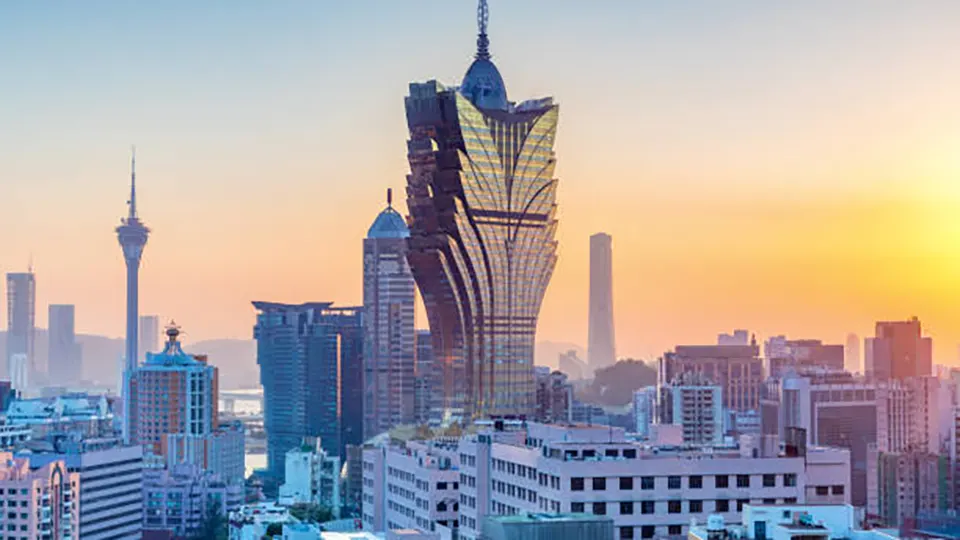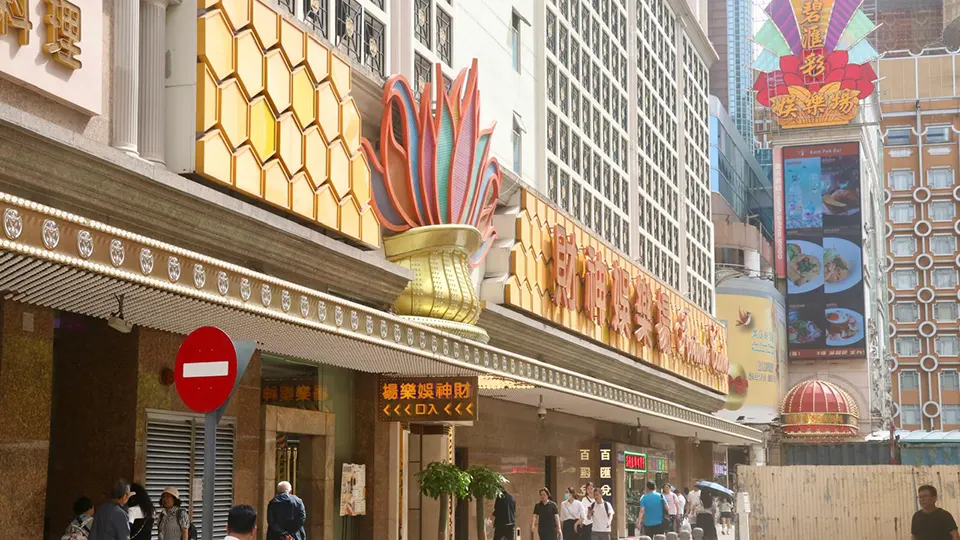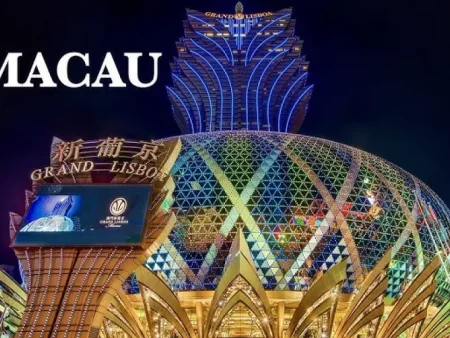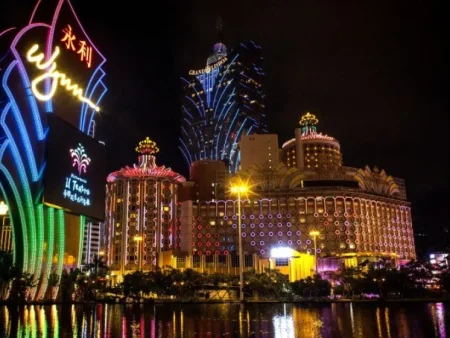Macau, once dubbed the “Gambling Capital of the World,” is facing a transformational shift in its gaming industry as Macau Satellite Casinos prepare for closure by the end of 2025. This marks a pivotal moment in the evolution of one of the world’s most dynamic gambling markets. The impending shutdown isn’t merely a local regulatory affair—it has global implications for iGaming operators, investors, and policymakers.
In this article, we’ll explore the rise and role of Macau satellite casinos, what led to their forthcoming demise, how major players like Melco, Galaxy Entertainment, and SJM Holdings are adapting, and what this means for the broader gaming landscape. With a deep dive into policy shifts, economic implications, and expert perspectives, we aim to provide a comprehensive look at the situation shaping the future of casino gaming in Asia and beyond.
What Are Macau Satellite Casinos?

Macau Satellite Casinos are unique gaming venues that operate under a concessionaire’s license but are owned by independent third-party entities. Unlike the massive integrated resorts found on the Cotai Strip, these satellite casinos typically operate within hotels and smaller properties scattered across the Macau Peninsula. They allowed for more decentralized gambling, extended the reach of major concessionaires, and brought economic opportunities to smaller businesses.
A Short History of Satellite Casinos in Macau
apacaff | Satellite casinos began to emerge in the early 2000s following the liberalization of Macau’s gambling sector. At their peak, more than 20 satellite casinos operated under the licenses of six major concessionaires. These venues often formed strategic partnerships with hotel owners, creating hybrid hospitality-gaming models.
However, the lack of direct ownership by license holders raised long-term sustainability concerns. Macau’s government, focused on tightening control over the industry and aligning it with national security and financial regulations, began looking into reform.
Why Are Satellite Casinos Shutting Down?
1. New Gaming Law Requirements
The primary reason behind the closure of Macau Satellite Casinos is the revised gaming law passed in 2022. Under the new law:
- All casinos must be directly owned by licensed concessionaires.
- Profit-sharing models between satellite operators and license holders are no longer permitted.
- Concessionaires must assume full operational and legal responsibility.
The law sets a compliance deadline of December 31, 2025, effectively giving satellite casinos a timeline to either restructure or shut down.
2. Government Push for Oversight and Control
The Chinese central government has been urging Macau to tighten oversight of the gambling industry. Satellite casinos, due to their third-party ownership model, posed regulatory challenges. The government’s goal is to:
- Prevent money laundering
- Ensure responsible gaming
- Control capital outflows from Mainland China
3. Economic Realignment Post-COVID
The COVID-19 pandemic severely impacted Macau’s tourism and gambling industries. As the city recovers, authorities are focusing on sustainable, centralized development rather than maintaining an unwieldy network of satellite venues.
Major Players Respond: Melco, Galaxy, and SJM Adapt
Melco Resorts & Entertainment
Melco announced it will shut down the Grand Dragon Casino and three of its Mocha Clubs slot venues by the end of 2025. These include:
- Mocha Hotel Royal
- Mocha Kuong Fat
- Mocha Grand Dragon Hotel
Melco emphasized that this decision aligns with its overall development strategy and is in full compliance with new legal requirements. However, it will continue to operate three other Mocha Clubs locations—Mocha Inner Harbour, Mocha Hotel Sintra, and Mocha Golden Dragon—after securing necessary authorizations.
Galaxy Entertainment Group
Galaxy confirmed it will close Waldo Casino due to “commercial considerations.” While it is winding down satellite operations, Galaxy plans to reassign all affected employees to its other properties in Macau, thereby minimizing workforce disruption.
SJM Holdings
SJM, which operated nine satellite casinos, is undergoing a significant restructuring effort:
- Acquiring: Casino L’Arc Macau and Casino Ponte 16 to bring them under direct ownership
- Exiting: Seven satellite casino partnerships
- Reassigning staff: Ensuring all employees are retained within other company-owned properties
This move signals SJM’s shift toward operational efficiency and legal compliance.
Employment Concerns: A Human Impact

An estimated 5,600 workers—both local and foreign—are affected by the closures of Macau Satellite Casinos and Mocha Clubs.
Government and Concessionaire Support
At a press conference on June 9, 2025, Macau’s Secretary for Economy and Finance, Tai Kin Ip, emphasized:
“The government has urged all concessionaires to protect the employment of local staff during this transition.”
In response, Melco, Galaxy, and SJM have all pledged to retain and retrain displaced employees. A new vocational training platform is being developed to help staff acquire skills in areas like hospitality, digital marketing, and gaming operations.
This proactive response is part of the city’s broader initiative to diversify its economy and reduce its over-reliance on gambling.
Technology and the iGaming Revolution
Even as the physical footprint of satellite casinos shrinks, Macau is not retreating from the gaming world. Instead, it’s adapting.
Integration of Technology
The closure of traditional satellite venues paves the way for tech-driven transformation:
- AI and Data Analytics: Enhance customer targeting and experience
- Digital Platforms: Offer online versions of games within legal bounds
- Cashless Payments and Smart Surveillance: Improve security and operational efficiency
Satellite casinos may disappear, but their legacy could live on digitally as Macau explores more sustainable and scalable gaming innovations.
Expert Insight: What’s Next for Macau Satellite Casinos?
Industry analysts predict that the closure of Macau Satellite Casinos will:
- Trigger consolidation among existing operators
- Encourage investment in centralized mega-resorts
- Lead to a shift toward online and hybrid gambling models
“Satellite casinos helped Macau grow its gaming market beyond Cotai and the Peninsula, but regulatory changes are now forcing a shift toward transparency and central control,” says a regional gaming consultant.
Stakeholders must now focus on understanding consumer behavior, leveraging technology, and complying with new legal frameworks to remain competitive.
Global Impact: A Shake-Up in the iGaming Landscape
The ripple effects of Macau’s satellite casino shutdowns will likely be felt beyond Asia:
- International iGaming companies may pivot their strategies in anticipation of tighter Asian regulations.
- Investors will closely watch how Macau reallocates its gaming licenses and resources.
- Other jurisdictions, like Singapore and the Philippines, could attract displaced operators or talent.
This marks a watershed moment in the global gambling ecosystem—where the old model of decentralized, lightly regulated venues gives way to centralized, transparent, and government-aligned gaming operations.
Conclusion: End of an Era, Start of a New Chapter
The closure of Macau Satellite Casinos by the end of 2025 represents more than just a regulatory response—it is the culmination of shifting market dynamics, pandemic-driven reevaluations, and a new vision for the future of gambling in Asia.
While some may view this as the end of a golden era for independent operators, others see it as an opportunity for renewal. As Macau tightens its grip on the industry and redefines its path forward, it serves as a case study in balancing innovation, regulation, and economic sustainability in a rapidly changing world.
For casino operators, investors, and gaming professionals, now is the time to adapt. Because when the chips are down, only the smartest players know how to double down and win the next hand.












